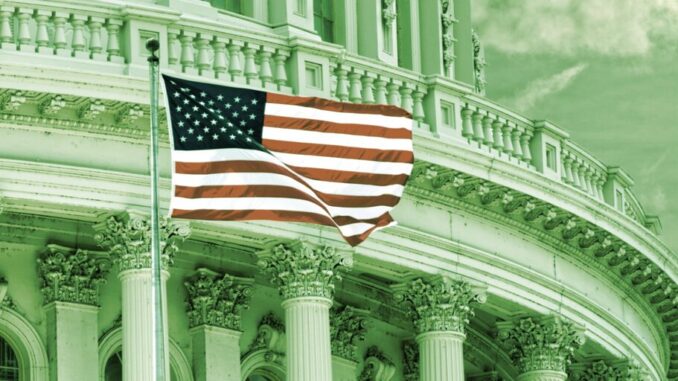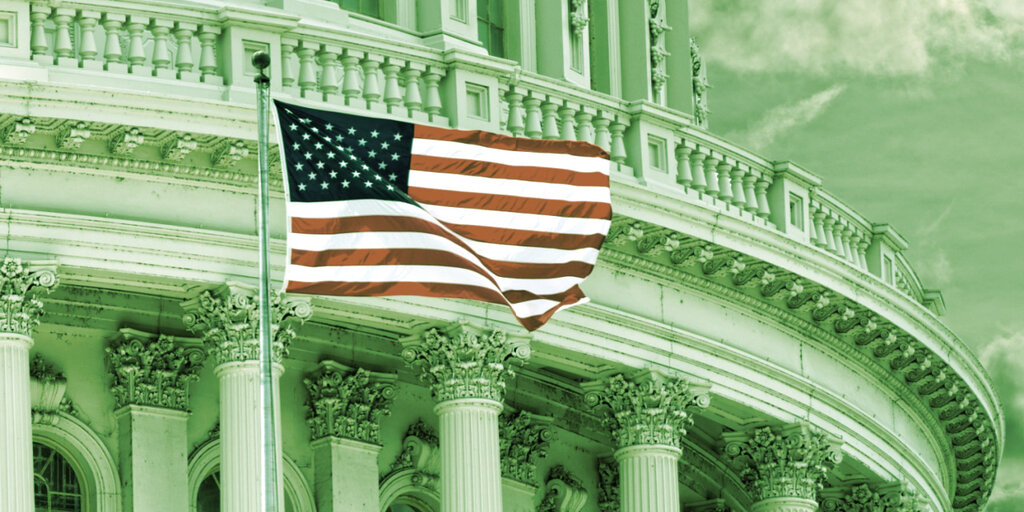

On Monday, the U.S. Treasury Department added Ethereum coin mixer Tornado Cash, and a slew of addresses associated with the service, to its Specially Designated Nationals list—a classification typically reserved for terrorist organizations and enemy nations.
In doing so, the Treasury effectively banned all Americans from using Tornado Cash, a tool that allows users to conceal the public trails of their cryptocurrency transactions by mixing many such transactions together. The Tornado Cash website has been unreachable for three days.
Treasury defended the move by citing numerous instances in which the service has been used to launder money by bad actors, including North Korean state-sponsored hacking organization Lazarus Group, and the individuals that stole $7.8 million in last week’s Nomad Bridge hack.
In the days following the announcement, some crypto leaders have decried the ban not just as unfair, but as an illegal and existential threat to user privacy—perhaps the holiest tenet of an industry shaped since its earliest days by libertarian, anti-government principles.
Experts and industry leaders who spoke to Decrypt differed in opinion about the ban’s legality and appropriateness.
Most were in agreement that the move may have just triggered a marked escalation in hostilities between crypto’s embittered privacy advocates and the federal government, a development that could shape the space for years to come.
Tornado Cash ban: Good, bad, or neutral?
Fundamental to the legal and ethical questions posed by Tornado Cash’s ban is the service’s status as a smart contract. Like many decentralized finance (DeFi) protocols, Tornado Cash is an automated program that doesn’t require any employees to maintain or monitor its functioning.
To some, the fact that no humans are involved in Tornado Cash’s day-to-day operations indicates that the service is, at the end of the day, code, with no mission or underlying intention.
“Tornado Cash is a tool, like any other, that can be used for good or for bad,” Ethereum core developer Preston Van Loon previously told Decrypt.
Ameen Soleimani, one of Tornado Cash’s cofounders, has repeatedly stated that the service was never designed to cater to criminal money launderers but instead built for retail crypto users looking to protect the privacy of their financial data.
“We didn’t set out to have it be for money laundering, or any intent like that,” said Soleimani in a Twitter Spaces yesterday. “It was pretty innocuous, what we were trying to use it for… just to protect ourselves.”
To many Tornado Cash advocates, the fact that the service has since been manipulated by some mal-intended users is no reflection of the underlying tool itself. So the thinking goes, “coin mixers don’t launder money, money launderers launder money.”
It’s in that respect—going after the technology, not the individuals who deployed it (no humans were blacklisted by Treasury, only sites and wallet addresses)—that some see the Tornado Cash ban as distinct from every other crypto regulation that’s come before it.
“This is the first time I’ve ever seen a piece of software get shut down,” Matthew Green, a computer science professor at Johns Hopkins University, told Decrypt. “And that’s kind of unique.”
Others see the situation as less exceptional.
“If it looks like a business and walks like a business and quacks like a business, you can regulate it like a business,” said University of Kentucky law professor Brian Fyre to Decrypt. “And it doesn’t matter what you call it, or how you characterize it.”
To Fyre, if Tornado Cash is performing a service for a fee, even if no one’s there to pick up the phone, it’s a business, and not First Amendment-protected speech, as some have suggested.
And even if Tornado Cash’s creators aren’t authorizing every (or any) transaction their site processes, Fyre believes the law is clear that they are still on the hook if illegal activity accounts for a sizable amount of the site’s traffic.
“The court’s going to care that a significant part of the service’s traffic is for illegal ends, and you know that and you’ve done nothing to try and stop that,” said Fyre.
“The fact that it’s speech doesn’t necessarily protect it. If it’s illegal speech, it’s illegal,” he added.
‘They could say tomorrow that peanut butter is illegal’
Those adamant about Tornado Cash’s underlying neutrality fear that Monday’s decision is only the tip of an iceberg. To them, the U.S. government could now justify banning pretty much any service or product, on account of the fact that it could be used to achieve a nefarious end.
“They could do this with anything,” said MakerDAO delegate Chris Blec, to Decrypt. “They could say tomorrow that peanut butter is illegal: if you buy it, use it, eat it, you’re going to jail. And nobody’s gonna buy or eat it or use it. This is called totalitarianism.”
Blec believes, as far as crypto is concerned, that the U.S. government won’t be satisfied until the possibility of individuals transacting digital money anonymously is eliminated.
“There is no cryptocurrency that can’t be used by bad people,” said Blec. “So all open blockchain technology is susceptible to this kind of attack. The only way for the government to solve this is to have full knowledge of every single [user’s identity].”
That’s, of course, a non-starter for many in a community built on the principles of decentralization, privacy, and anonymity.
And as the implications of the Tornado Cash ban begin to ripple across the wider crypto community, many are now having to choose between compliance with the law and adherence to such ideological commitments.
Consider the fact that in addition to banning Tornado Cash itself, the Treasury Department blacklisted a long list of Ethereum addresses associated with the service. Transacting with these addresses is now, in the eyes of the federal government, equivalent to doing business with a North Korean terrorist cell.
All Ethereum transactions are approved by countless mining machines (but that will soon change after the merge event in September) across the globe, which process blocks of pending transactions to receive financial rewards. If one such miner were to approve the transaction of a Treasury-sanctioned address, would they have committed a crime on par with assisting an Iranian-sponsored militia?
How the American government will choose to respond to—and potentially prosecute—these ripple effects of the ban, is still an open question. But what appears to be certain, is that the Ethereum network won’t be helping users comply with the government’s wishes.
When asked how ETH miners should best navigate the potential risk now posed by validating transactions that could be illegal, Ethereum core developer Micah Zoltu replied to Decrypt: “My broad recommendation to people is don’t be a U.S. citizen. It’s too dangerous.”
Zoltu told Decrypt that Ethereum has no intention to create tools to help users comply with the Treasury’s sanctions, and went as far as to say that if validating services start trying to avoid sanctioned addresses, they should be heavily penalized.
“I would advocate that if a majority of validators start actually censoring (as in, refusing to build on blocks containing Tornado transactions), that a user-activated hard fork should occur that financially penalizes all of them,” said Zoltu. “If you can’t run a validator in a censorship-resistant way, you shouldn’t run a validator.”
When asked if Zoltu’s views reflect those of the broader Ethereum community, the Ethereum Foundation declined to comment.
Compliance or Defiance?
Such an attitude of open non-compliance with the Treasury’s ban has quickly gained traction in the broader crypto community.
We can be sure this crackdown on privacy will not stop with Tornado. Particl remains convinced that strong encryption and distributed systems will ultimately create the environment needed to resist this control, by empowering individuals to opt out of the legacy financial system. https://t.co/P5X1x7rIvw
— Particl (@ParticlProject) August 8, 2022
Some believe that defiance could be setting up the crypto industry for a protracted and unprecedented battle with American regulators.
Matthew Green of Johns Hopkins believes that in response to Tornado Cash’s ban, other similar financial privacy services are likely to proliferate, as crypto users and thought leaders attempt to reassert their commitment to privacy and decentralization.
“I think you’re going to see privacy technologies spread, I think you’re going to see more and more money protected by these things,” said Green to Decrypt. “And then, Treasury is going to have to make a decision: is this a surgical thing they did to Tornado Cash, or are they going to extend this [ban] to all privacy systems?”
In such a scenario, as the American government applies further pressure on the crypto industry to crack down on financial anonymity, the industry is likely to respond in turn with more open resistance to those regulations and doubling down on banned technologies.
“Maybe this sets up a war where it’s harder and harder to be surgical with sanctions,” said Green. “And it ends up being an all or nothing, all of crypto having to be destroyed or interrupted.”
The likelihood of such a scenario is unclear.
But if this week indicates anything about how the crypto community can be expected to respond to further government sanctions infringing on the privacy of crypto transactions, this war is going to be a long one.






Be the first to comment